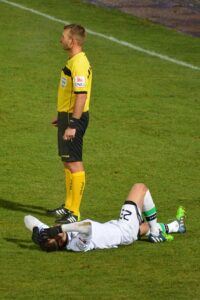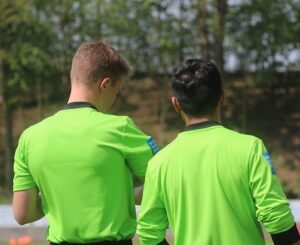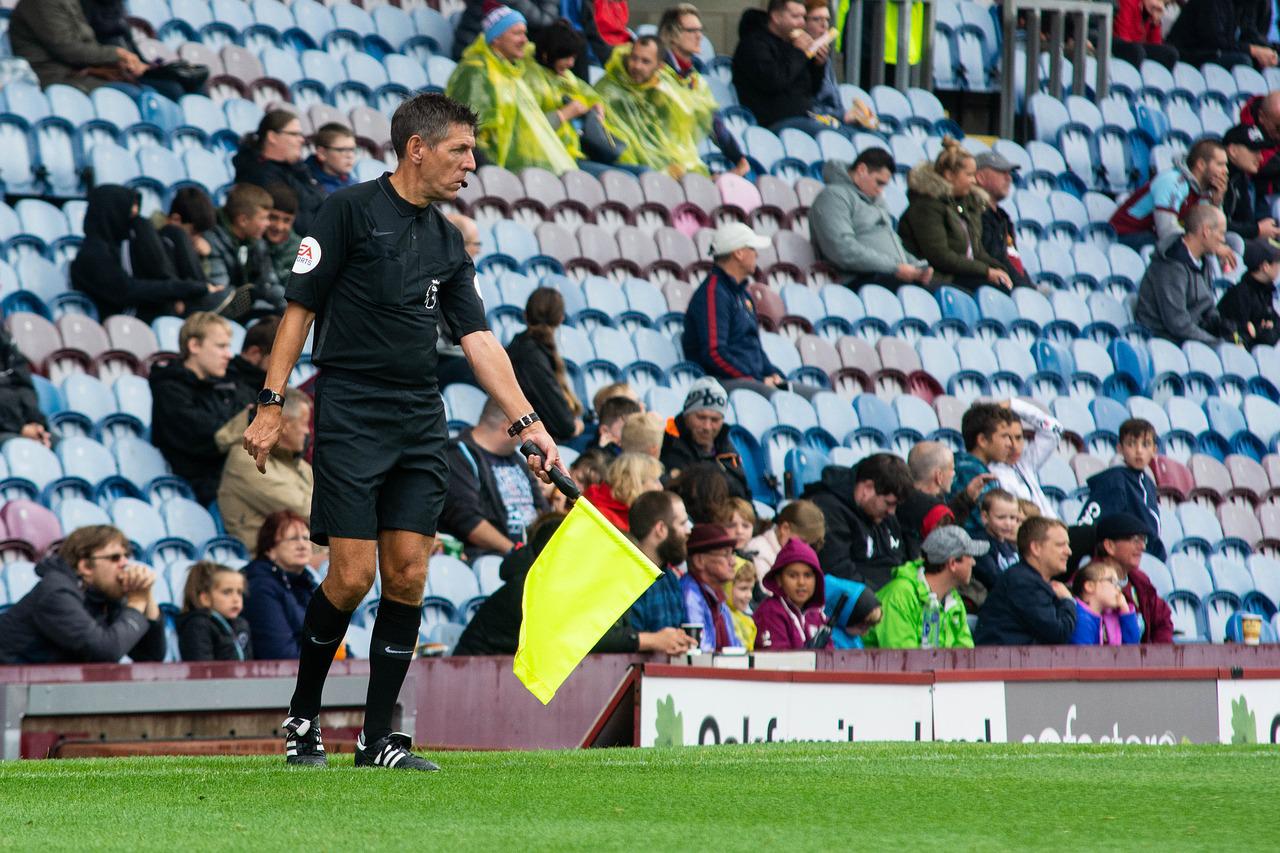They are tasked with the important role of keeping the game fair. The 4 officials on the soccer field work together and their keen eye and synergy is really important, as they have to work as a team to do a good job. But let’s see who they are individually.
The main official
In soccer, the referee is the main official. He directs play and makes calls during a game. As such, he is responsible for managing the game and making sure it runs smoothly. He has ultimate authority on the field; no one can overrule him or make a decision that goes against his wishes unless they have video evidence to support their claim.

The referee also has some other important duties:
He can change a call if he sees something wrong with it after making it (for example, realizing later that one of your opponents was offsides when he touched the ball).
If there’s some doubt about what happened during or immediately following an incident — perhaps because players were mobbing each other at once — then a video review may be used to help determine whether or not there should be any further action taken against anyone involved in said incident (for example, awarding an indirect free kick if someone committed an infraction).
The 2 assistants
The assistant referees are the second set of eyes and ears for the referee. They are primarily responsible for helping the referee by signaling fouls when they happen, assisting in offside decisions, and making sure that all players are following proper soccer rules.
The two assistants are always positioned on opposite sides of the field so that they can provide each other with information about what happened during play as well as communicate with their fellow officials if necessary. In addition to this role, an assistant will also assist in determining if a goal has been scored or not; one of these officials will carry a flag which he/she waves to indicate if something is unfair.
The fourth official

The fourth official is a referee’s assistant, who often has direct communication with the referee. The fourth official keeps track of the match clock and substitutes, as well as making sure that both teams have equal amounts of time to rest during a break in play. They also make sure that each team has an equal number of players on the field at all times during a game.
The fourth official is responsible for carrying out other duties such as preparing match balls and keeping the benches and in check.
So to sum up, it’s important to understand that a soccer game is controlled by three tiers of officials, each tasked with specific responsibilities. The referee is the main official who oversees the game and makes all final decisions. Next are two assistant referees, who help monitor play on either side of the field. Then there’s a fourth official who stands off-field and monitors substitutions, fouls and violations as they happen in order to provide information for the other officials on their teams’ decisions.

